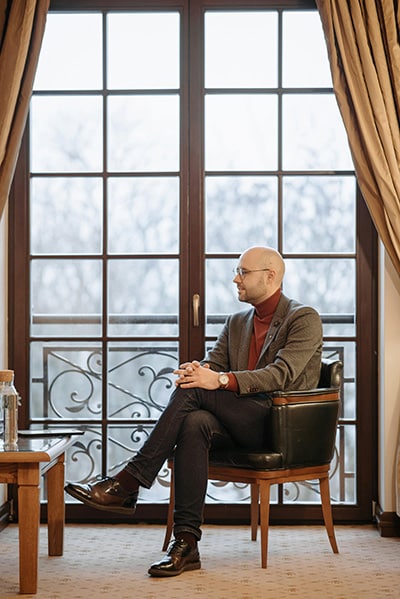Diagnosing our friends, family members, colleagues and celebrities with psychological disorders may seem a harmless pastime but there are good reasons why we should all avoid this kind of armchair psychology.
Mental health diagnosis should only be attempted by a qualified psychiatrist who can use their training to rule out other factors (physical illness, context, etc.) before coming to a decision.
This equally applies to self-diagnosis and if you have a child who uses TikTok, I suggest you skip down to my URGENT WARNING about the reckless self-diagnosis apps your child could be using!
So what is so bad about claiming that our ex-partner was a narcissist, our young nephew is a textbook case of ADHD or our Aunt Jean is just so, so OCD?
1. It ignores context and leads to stereotyping
The symptoms of some personality disorders are similar to those caused by situational factors such as abuse or neglect. Some physical illnesses can also cause psychological symptoms or at least make them worse. When working with a patient, a trained therapist will explore all of these things, gradually peeling away the layers to get to the core person beneath.
By attaching a label to the behaviour we witness, we do the opposite. We obscure the person behind our assumptions of how mentally ill people think, feel and behave. We stop seeing the person and instead treat them as a stereotypical case of the condition we have labeled them with.
2. We miss opportunities to signpost the way to real help
Diagnosing someone we are close to with a mental illness can lead to them blindly accepting the label instead of getting help for the symptoms they are experiencing. They might then get drawn into using a toxic combination of introspection and Dr. Google to understand and manage their ‘condition’.
In contrast, a qualified professional will draw on their tools and experience to guide the person to the most effective source of help. Yes, that may be a psychiatrist and a diagnosis may be given. However, the solution might equally lie elsewhere such as with counselling or even medical treatment.
3. We reinforce the fake boundary between normal and unhealthy
When diagnosing people, psychiatrists have to tread a fine line. Mental illnesses usually consist of several different traits which combine to impair the person’s ability to carry out day-to-day activities or maintain healthy relationships.
Just because we personally find a specific character trait annoying or just plain odd, it doesn’t follow that the person we are judging would meet any sort of clinical threshold for a mental disorder.
To persist in armchair psychology can cause much distress to those people whom we label ill but are functioning perfectly well in life. Overusing clinical diagnoses on the street corner also trivialises the condition for those people who are truly struggling.
4. People begin to live up to our labels
It’s called projective identification. In simple terms, if you keep telling someone they are obsessive, hyperactive narcissistic, borderline, pathological or whatever, they will eventually give up the fight and behave in a way that supports your judgment.
5. We ignore our own role in the dance
When we are busy diagnosing our spouse, partner, work colleague, child, parent, grandparent, etc. we are avoiding the work we need to do on ourselves. Your boss may seem ruthless and obsessed with profit but is he really a sociopath or could you do a better job of explaining why family time is important to you? Is your mother really OCD or is it just in contrast to your careless behaviour around the home?
In fact, we will often project those traits we dislike most about ourselves on to the important people in our lives. Is your mother-in-law neurotic? How are you at coping with life’s stresses? Is your ex-boyfriend a narcissist? Have you thought about your own need for attention?
Therapists are trained to understand how their own traits and context form part of the work they do with their patients. Armchair psychologists are often happy to skip that part of the journey.
6. People just don’t like it
Most of us would never dream about pointing out someone’s beer belly, crooked teeth or receding hairline yet telling someone they are manic, autistic or OCD can be just as hurtful. If we do have concerns about a loved one’s mental health, it is better to talk to them privately about specific behaviours we have observed. They will be far more likely to open up to you about any issues they are having and might then be grateful for your support in getting appropriate help.
What about diagnosing celebrities? What’s the harm there?
During the last few years, it has been something of a public sport to diagnose celebrities and public figures such as Donald Trump with various personality disorders. Even though such figures are remote from us, they can still be harmed by the spreading of what is – by definition – fake news about mental illness.
This is particularly the case where mental health professionals are involved as their words carry more weight when spread by the mass media.
In fact, the American Psychological Association have deemed it unethical for psychiatrists to offer an opinion on the mental condition of a public figure unless they have been given authorisation. This is known as the Goldwater Rule after presidential candidate Barry Goldwater was defamed by Fact magazine after they polled psychiatrists as part of a drive to rule him unfit for office.
Although I am not bound by the Goldwater Rule, I am very careful to avoid remote diagnosis of public figures and will only associate a diagnosis with such a figure if they have personally written about having the condition (e.g. see my popular article ‘Me Too! 10 Celebrities and their Disclosed Personal Battles to Escape Codependent Relationships and Narcissistic Partners‘)
If you tolerate this, your children will be next!
Loving friends and family members often diagnose children out of a wish to help and be kind. The same cannot be said about businesses who are, right now, trying to peddle harmful pseudoscience through your child’s favourite social media platform and mobile app.
Capitalising on the high profile of mental health issues in young people, unscrupulous business people have been cobbling together overpriced wellness courses, creating a media buzz and then hawking their products to the most vulnerable in society – children – using poorly regulated social media apps.
One example I was asked to review recently is 15minutes4me.com. Boasting reviews in a handful of press outlets, including Fox News, Newsweek and TED, this ‘service’ offers online self-diagnosis to kids using bastardised versions of professional screening tools (which are supposed to only be administered by qualified professionals). I entered my age as 11 years to see what would happen, expecting to be told to speak to someone I trusted.
Instead, I was shocked to find no safeguarding controls whatsoever. I could simply click to pay for a course or be left abandoned. I refused to endorse the app and urgently released a social media warning instead.
VIEW MY URGENT WARNING TO PARENTS
Please share this alert among your friends and family as we cannot allow these reckless practices to put our children in danger for a moment longer. It simply has to stop.
For more guidance on how to parent our children during these strange and testing times, be sure to pick up a copy of my book on parenting.
Armchair psychology image by Pavel Danilyuk

